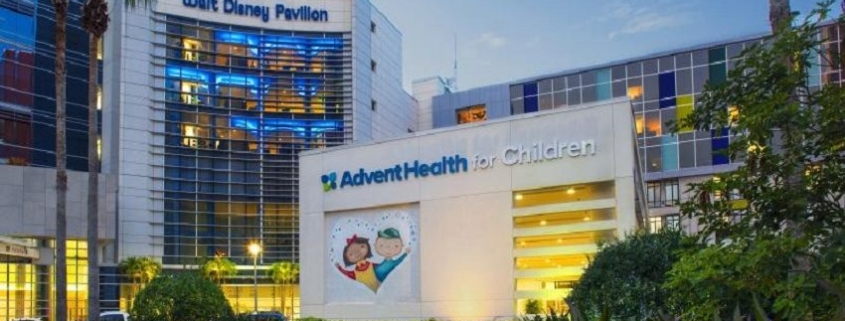Disney’s Team Of Heroes To Help Transform Three Central Florida Children’s Hospitals
Disney’s Team of Heroes initiative that began two years ago will soon be expanding to three Central Florida children’s hospitals
 The five-year, $100 million investment brings popular Disney stories to the hospitals, and hopefully a bit of comfort and joy to the patients.
The five-year, $100 million investment brings popular Disney stories to the hospitals, and hopefully a bit of comfort and joy to the patients.
Disney will create interactive play spaces, murals, interactive art, and more to provide distractions during what could be a stressful hospital stay.
Transformations will begin soon at AdventHealth for Children, Arnold Palmer Children’s Hospital, and Nemours Children’s Hospital. Disney has worked with patient care experts to design the re-imagined spaces that help create healing experiences that are “distinctly Disney.”
Here’s a look behind the scenes at one of the transformation that Team of Heroes is bringing to hospitals around the country:
Dr. Rajan Wadhawan, senior executive office of AdventHealth for Children:
“At AdventHealth for Children, we see first-hand the joy and reactions that come from patients and families who experience our Walt Disney Pavilion. Bringing that joy can be very important at what otherwise can be a stressful time in our patients’ young lives. Part of the whole-person care we provide is healing the body, mind, and spirit. These transformations will continue to make a positive impact on our patients’ spirits and bring even more comfort and happiness during their time with us.”
Cary D’Ortona, president of Orlando Health Arnold Palmer Hospital for Children:
“Walt Disney World and Orlando Health Arnold Palmer Hospital for Children have been working together to give back to our community since we first opened our doors in the 1980s. Receiving medical care in a hospital setting can feel especially scary and overwhelming for kids. Disney gets right to the heart of helping bring magic to our patients and their families during what is often a difficult time.”
R. Lawrence Moss MD, president and CEO of Nemours Children’s Health System:
“Together, Disney and Nemours Children’s Hospital are brightening the hospital experience for children and families facing serious health issues. Disney is bringing impactful elements into our healthcare space, such as interactive technology. With these new advancements at our fingertips, this program will help us continue providing exceptional care and actively ensure children can be children while they heal.”
Click here to view Disney Parks YouTube video ‘Three Central Fla. Children’s Hospitals & Their Patients to Benefit from Disney Transformations’
Source: Walt Disney World News





